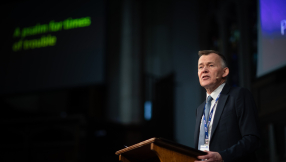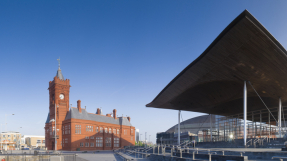End-times politics
The ‘last days’ are here, the Messiah is reigning now at the right hand of God the Father, and Christians are to pray (as Jesus famously taught his disciples) for God’s will to be done right here, right now. The glory of God’s future kingdom critiques all our efforts but spurs us ever on to work out our obedience in all areas of life.
Equally, guest author Geoffrey Penn insists in our Cambridge Paper Eschatology and Politics: the last things we want to talk about?, politics is not just for politicians. Worldly politics influences our lives whether we like it or not, and Christian politics (i.e. rich church life) has repercussions way beyond the church as, together, we are the light of the world, a city on a hill (Matthew 6:14-16).
We should be inspired that our labour in the Lord is not in vain, and that how we conduct our relationships and wield the influence God has granted us truly matters both now and in the everlasting future.
The gospel announces that God’s King has come and will come again. Those who trust in him are remade through the Holy Spirit’s power with a new identity, often expressed in ‘political’ language, and are called to live transformed lives. E.g. we are ‘to live as a [good] citizen’, not merely of whatever earthly polity we inhabit, but as a citizens of heaven (Philippians 1:26,3:20).
If, as the philosopher Johannes Althusius does, we understand politics as ‘the art of associating men for the purpose of establishing, cultivating, and conserving social life among them’, then the New Testament’s ethical and moral teachings are distinctly political, for they concern relationships within the church.
That is, they are to do with the art of associating people in the highest form of association (koinonia), which, contrary to Aristotle, is not the state (polis) but the church. When Jesus said ‘My kingdom is not of this world’ he did not mean ‘my kingdom takes no physical form’, but ‘my kingdom differs from the world’s kingdoms in its origin (from God), its goals (true worship free from idolatry, true harmony in diversity) and its methods (no violence, but victory through suffering).
The disputed details of millennial schemes should not deflect us. The agreed contours of eschatology, including the certainty of final judgement should shape our political engagement. This means living out the church’s life and mission here as an outpost of the heavenly city since, as John Howard Yoder put it, the ‘primary social structure through which the gospel works to change other structures is that of the Christian community.’
It also means loving our neighbours by contributing with love and justice to wider political communities and to government, as God gives us the talents and opportunities to do so.













